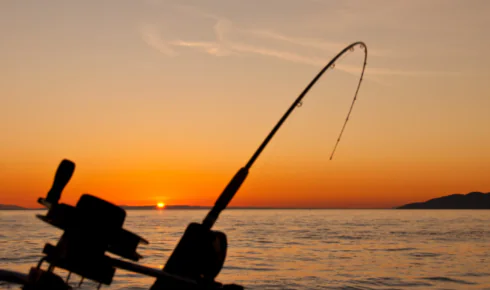Mastering the Art: How to Become an Expert Fisher

Fishing is more than just a hobby—it’s a blend of skill, patience, and knowledge. Whether you’re casting your line for sport, relaxation, or to bring home dinner, becoming an expert fisher requires dedication and learning from experience. Here’s a guide to help you sharpen your skills and enjoy more successful fishing trips.
Understand Your Environment
One of the foundations of expert fishing is knowing the waters where you fish. Different species thrive in different environments, from freshwater lakes and rivers to coastal saltwater spots. Study the habits, feeding patterns, and preferred habitats of the fish you want to catch. Understanding seasonal changes and how weather affects fish behavior can also improve your chances.
Expert fishers are versatile with their techniques. Learn various casting methods, how to use different types of bait and lures, and practice skills like knot tying and setting the hook properly. Experiment with trolling, fly fishing, or bottom fishing depending on your target species and environment. Developing a wide range of techniques lets you adapt to changing conditions.
Read Fishing Reports
Fishing reports provide valuable insights into current conditions, such as water temperature, fish activity, and successful bait choices in your area. Many local tackle shops, fishing guides, and online forums share regular updates that can help you plan your trips for the best results. By reading fishing reports, you stay informed about trends and can adjust your strategy accordingly.
Fishing is often about waiting for the right moment. Patience is key, but so is being observant. Pay attention to water movement, bird activity, and other signs of fish presence. Notice changes in light and weather, as these can affect fish behavior. The more you observe, the better you’ll become at predicting when and where to cast.
Learn from Others
Joining fishing clubs, attending workshops, or hiring guides can accelerate your learning curve. Experienced fishers can share tips, tricks, and local knowledge that you might not find in books or videos. Building relationships within the fishing community keeps you motivated and connected.
Fishing expertise grows over time with continuous learning and practice. Stay updated on new gear, techniques, and regulations. Always follow safety guidelines, including wearing life jackets, respecting wildlife, and knowing local fishing laws.
Invest in Quality Gear
Investing in quality fishing gear is one of the most important steps toward becoming an expert fisher. The right equipment can dramatically improve your fishing experience by enhancing your control, sensitivity, and overall effectiveness on the water. When choosing gear, it’s essential to consider the species you’re targeting and the type of water you’ll be fishing in.
For example, freshwater fishing for bass requires different rods and reels than saltwater fishing for larger game fish. Selecting the appropriate rod length, action, and power ensures you can handle the fish properly without risking breakage or lost catches.
Similarly, the choice of fishing line matters greatly. Thicker, stronger lines may be necessary for heavier fish or rocky environments, while thinner, more sensitive lines are better for light bites and clear water. Using the right type of tackle—including hooks, sinkers, lures, and bait—tailored to your target fish’s preferences increases your chances of a successful catch.




